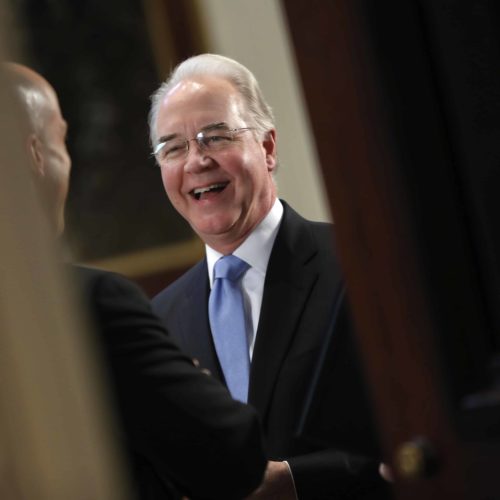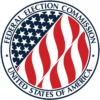Introduction
Former Health and Human Services Secretary Tom Price served in that role for just seven months: He resigned amid criticism of his taxpayer-funded private charter flights.
Now, Price wants the Federal Election Commission to allow his new nonprofit “social welfare” group to use $1.7 million worth of leftover campaign money from his old congressional committee — a move that would give former candidates a new way to use such funds.
Former congressional candidates have long been legally allowed to contribute money to charities organized under section 501(c)(3) of the federal tax code. Price’s request, if approved, would create a path for former congressional candidates to transfer surplus campaign cash to 501(c)(4) “social welfare” groups, a type of nonprofit that operates with fewer restrictions than charities — though Price’s lawyers promise the group wouldn’t pay salaries to Price or his family members or use the money for political purposes.
FEC commissioners clashed over Price’s request Thursday morning at a tense meeting. Chairwoman Ellen Weintraub, a Democrat, took a hard pass on the agency’s proposed response.
“If we were to approve this advisory opinion, it would extend the ‘personal use’ exemption to 501(c)(4) organizations in a way that the commission has not done before, that I’m not willing to do,” Weintraub said.
The FEC’s two Republican commissioners disagreed, siding with Price’s layer, Stefan Passantino, a former deputy White House counsel.
At Thursday’s meeting, Passantino argued that Price would in no way use the campaign money for personal uses, nor would his new nonprofit use the money to directly advocate for politicians or lobby them.
The “social welfare” group would organize “opportunities for Dr. Price to speak, write, publish or otherwise make appearances to present the work of the Organization,” though only unpaid appearances, Passantino wrote in the request.
Furthermore, the organization’s bylaws “will prohibit Dr. Price from receiving compensation,” Passantino said, but he acknowledged Price would be reimbursed for expenses related to his work with the organization — including travel.
“This isn’t just a guise also for him to travel the world, but they’re actually going to produce research papers and speeches,” said FEC Vice Chairman Matthew S. Peterson, a Republican.
Added Republican Caroline Hunter: “There’s no legal restriction that I can see to say no to this organization.”
The draft advisory opinion presented said the voluntary restrictions Price’s organization proposed to adopt on political activity and compensating Price were “consistent with the limitations” laid out in the law, even though the nonprofit wouldn’t be a charity.
After verbal sparring among Weintraub, Petersen and Hunter — independent commissioner Steven Walther remained silent throughout — the commission didn’t vote and punted the matter to another day. The normally six-member commission has two vacancies, meaning any vote to approve a matter such as Price’s request must be unanimous among its four remaining members.
Personal use? Or perfectly legal?
The FEC’s “personal use” restriction in part prohibits bars the use of campaign funds to enrich a former federal candidate from using leftover campaign cash to enrich themselves.
The FEC explicitly allows former political candidates to spend surplus campaign cash on wind-down expenses, such as accounting fees, and to give it to political parties, 501(c)(3) charities and — within limits — other political committees.
Price has been dogged by his travel expenses since he resigned from his Cabinet position in 2017.
Reporting by Politico sparked multiple investigations into his travel habits, including his use of private and government planes for travel. The Health and Human Services Inspector General’s office found he failed to comply with federal regulations governing travel, and urged the government to seek repayment of hundreds of thousands of dollars.
Price, who served seven terms in Congress before joining the Trump administration, would hold the titles of “president” and “chief executive officer” with his new nonprofit, which hasn’t yet been named or formally established.
Who We Are
The Center for Public Integrity is an independent, investigative newsroom that exposes betrayals of the public trust by powerful interests.
Michael Toner, a Republican election lawyer and former FEC chairman, said a decision to grant Price’s request could create a precedent making transfers to 501(c)(4) groups “clearly permissible” for the first time.
Tax law experts said Price’s request and the FEC’s draft opinion don’t take into account tax issues that could potentially be created by the transfer to a 501(c)(4) social welfare nonprofit versus a 501(c)(3) charity.
“There’s a good possibility that as a result of a transfer, that Price is going to have to treat the amount transferred as income to him,” said Marcus Owens, a lawyer and former director of the Internal Revenue Service’s exempt organizations division.
The FEC of late has attempted to crack down on inappropriate spending by former lawmakers’ “zombie committees,” following reporting by the Tampa Bay Times and others on whether they’re functioning as slush funds. Some have millions of dollars left, as the Center for Public Integrity has also reported.






Join the conversation
Show Comments